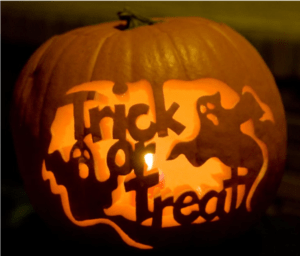Selling digital tickets across multiple channels has delivered a significant upside to the events community through easier registration, payment, and audience connection. But there’s a downside, too. Scammers have flocked to every potential sales channel, from online marketplaces and social media to email and SMS, hoping to make a quick buck off dedicated fans who missed out on tickets.
No platform has been spared, either. Fake ticket scams can impact any event, from sporting tournaments and music concerts to festivals and popular stage shows. Therefore, it’s vital to learn the tell-tale signs of ticket-selling fraud.
Here are a few warning signs to look out for to help avoid a ticket scam.
Look for unusual content
One tell-tale sign of a ticket scammer is that they often use language that doesn’t quite feel right. This doesn’t necessarily mean that someone is out to scam you. But the content is often written in imperfect English, featuring words that seem unusual or out of place and phrases that wouldn’t be used by a typical promoter, even if English isn’t their first language.
For example: “Who is interested in buying ticket … at cheaper rate,” or “Three tickets for sale at good cheap price.”
Additionally, look out for language patterns that sound stilted or use repetitive wording.
Scammers will often provide a mobile phone number in their content and ask potential buyers to text them upfront to make the purchase. Again, this doesn’t necessarily imply fraud. However, scammers can be pushy and will usually seek to make the transaction quickly via a method that’s difficult to trace, like direct messaging (DM) or text – another red flag.
Ticket fraud scams will often use prevalent techniques from other kinds of scams, so look out for these as well. If the seller asks for payment in iTunes vouchers, requests personal information that doesn’t seem relevant to the ticket sale, or if an offer seems too timely or cheap to be true, trust your instincts, avoid the sale, and report the activity.
The devil’s in the (profile) details
If you think you’ve identified a potential scammer via an online marketplace or social media platform, check out their online profile to confirm your hunch. Scrolling over their profile information will likely reveal gaps, such as no biographical details, location, contacts, or workplace. Effectively a blank profile, with little in the way of identifiers.
Keep an eye out for other strange details that don’t add up. Neither off-kilter English nor curious-looking profile data is enough to mark a fraudster. But, if someone lives in Sydney, for example, why would they have multiple spare tickets to a sold-out show in Melbourne? Of course, their reasons could be completely legitimate, but make sure you find out what they are ahead of purchase. If the details don’t add up – and something just doesn’t feel right – trust your gut.
Prevent fraudsters from reaching fans
There are ways you can help to protect your audience from online scams, enabling them to get maximum enjoyment from their event experience and your brand.
Always report content that appears to be a scam to the hosting platform, and share any content that can help your audience understand how common scams may present. Use your free Eventbrite webpage and social media channels to share examples of fake tickets and fake ticket confirmation emails to help them assess whether a purchase is legitimate.
You should also monitor social media (especially your Facebook events) closely, particularly if an event is in demand and likely to sell out. Delete fraudulent posts as they crop up to limit fan exposure. In particular, keep a close watch just before the event is due to take place. Expect scams to peak when fans are at their hungriest, especially for items like fake concert tickets in the lead-up to a sold-out event or a fake theatre ticket for a show that’s held that night.
Offer a verified resale service
Want to protect your fans and build your reputation as a trusted event brand? Go one step further to ensure fans don’t get ripped off by partnering with a ticketing platform that offers verified resale services.
For instance, Eventbrite integrates with Tixel, a ticket reselling app that helps to ensure a painless sale between fans who have tickets but can’t attend and fans who missed out on tickets the first time around. Sellers can list their tickets by logging into their Eventbrite account with the Tixel app. Once a ticket has been resold, the original ticket will be transferred to the new attendee automatically. By giving fans a trusted place to buy and sell tickets, they’ll have no reason to take risks on shady-looking transactions.
Take the next step
Now you know what to look for, it’s time to take some action. Learn more about how Eventbrite’s security features protect your guests and brand and sign up to create and manage your events from anywhere.






